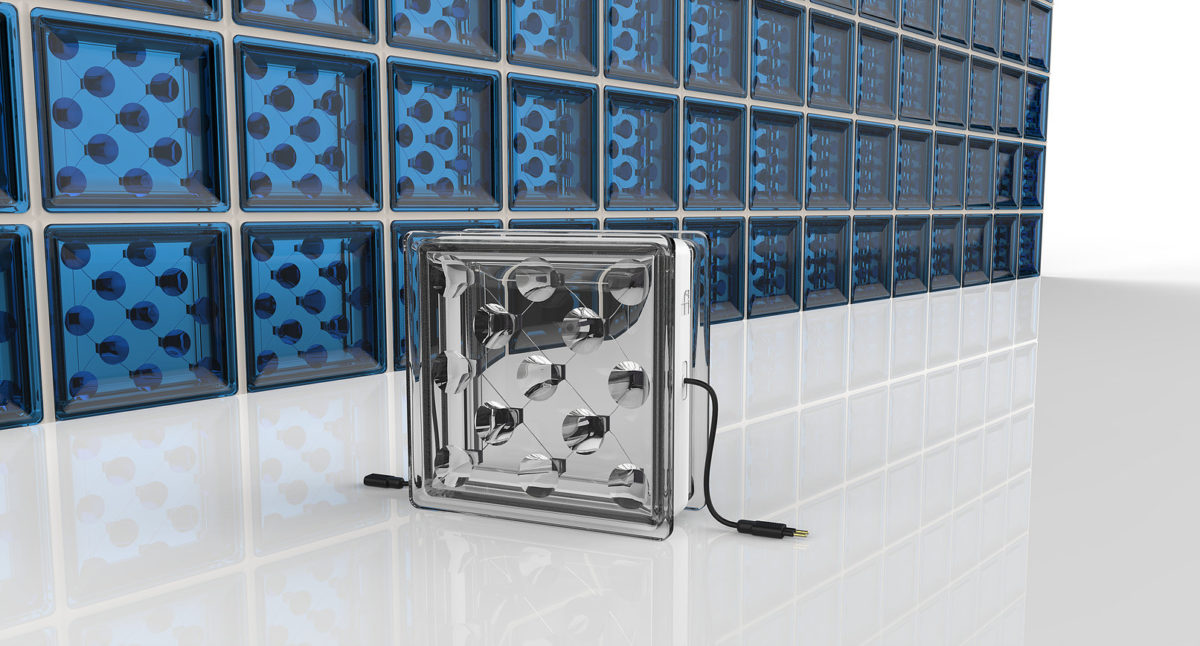Just months after the debut of Tesla’s long-awaited Solar Roof tiles, which it has begun installing on the homes of its employees, a group of researchers from the University of Exeter have come up with another BIPV solution – a glass block, which can be incorporated into the fabric of a building, replacing traditional brick and mortar, and is designed to collect solar energy and convert it to electricity.
The block, called Solar Squared, has intelligent optics that focus the incoming solar radiation onto small solar cells, enhancing the overall energy generated by each solar cell. The electricity generated in this way is then available to power the building, be stored or used to charge electric vehicles.
The researchers believe that in addition to powering the building while allowing greater amounts of light in, their blocks provide improved thermal insulation.
Solar Squared has been spun off from the University as an independent start-up company called Build Solar, which is now looking to encourage investment in its patent pending technology to carry out commercial testing, and then aims to take it to market in 2018.
Popular content
“BIPV is a growing industry with a 16% annual growth rate. Setting up a company, which can cater to this growing market shall prove beneficial for the UK economy in the long term,” said Dr Hasan Baig, founder of Build Solar and Research Fellow from the University of Exeter’s Environment and Sustainability Institute.
As the PV applications for building continue to gain traction, a recent study authored by independent energy consultant Andris Bankovskis, examining BIPV deployment across the U.K., showed that households-as-power-stations could reduce energy consumption by more than 60%, saving the average household over GBP 600 a year.
This content is protected by copyright and may not be reused. If you want to cooperate with us and would like to reuse some of our content, please contact: editors@pv-magazine.com.



3 comments
By submitting this form you agree to pv magazine using your data for the purposes of publishing your comment.
Your personal data will only be disclosed or otherwise transmitted to third parties for the purposes of spam filtering or if this is necessary for technical maintenance of the website. Any other transfer to third parties will not take place unless this is justified on the basis of applicable data protection regulations or if pv magazine is legally obliged to do so.
You may revoke this consent at any time with effect for the future, in which case your personal data will be deleted immediately. Otherwise, your data will be deleted if pv magazine has processed your request or the purpose of data storage is fulfilled.
Further information on data privacy can be found in our Data Protection Policy.